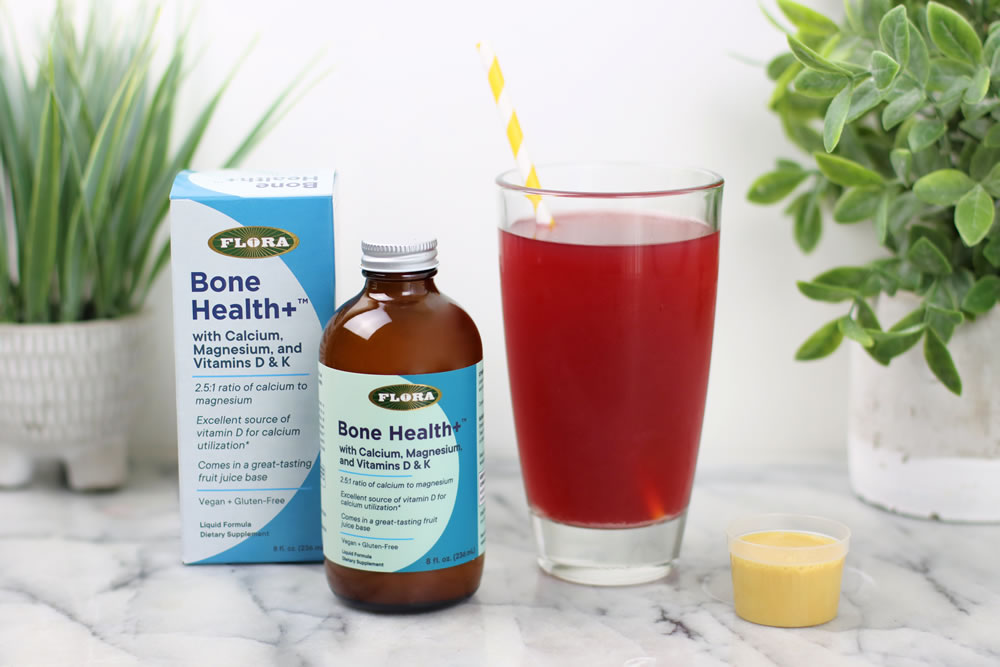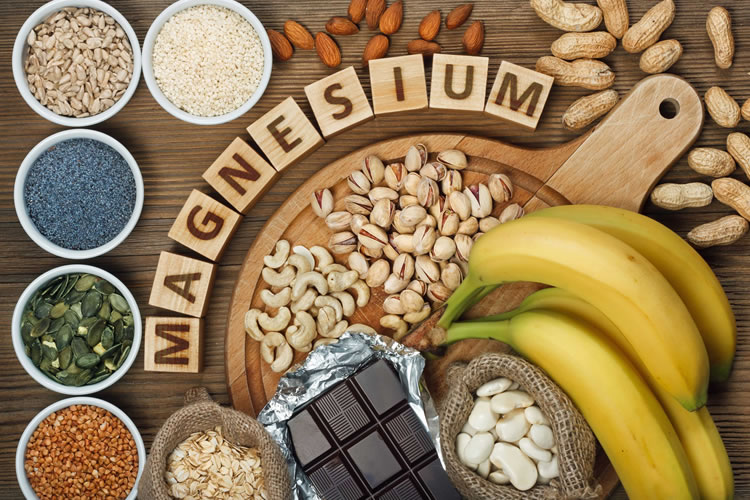Retire And Journey uses affiliate links. If you make a purchase through them, we may receive a small commission (for which we are deeply grateful) at no cost to you.
Did you know that all of our bones, pound for pound, are 4 times stronger than concrete, and inch for inch stronger than steel? Reaching peak bone density at around age 30, our bone strength can start to decline as we head toward middle-age. But keeping our bones strong and healthy is important no matter how old we are.
In the United States alone, it’s estimated that about 8 million women and 2 million men currently have osteoporosis, a disease where bones can become fragile, weak, and brittle and are at an increased risk for breaks and fractures. What’s even more concerning is that another 34 million Americans currently have low bone density, which is just a stepping stone away from the beginnings of osteoporosis. While a decline in bone-protecting estrogen during menopause for women can contribute to bone loss at an earlier stage in life, at the age of 65, men lose bone mass at about the same rate. (1)
A few factors that can contribute to low bone density include smoking, drinking alcohol, lack of exercise, aging, certain diseases and the use of certain drugs like corticosteroids. (2) But, one of the most critical factors in keeping our bones dense and healthy throughout our lives is eating a balanced, nutrient-rich diet.
Here are the some of the most important nutrients to help maintain optimal bone-health:

One of the most important nutrients for keeping strong healthy bones is calcium. When our bone tissue is developing, it’s built from a frame of collagen proteins. This provides bones a bit of flexibility, but it’s then filled in with calcium crystals and other supporting minerals to harden bones for ultimate strength and support. In fact, about 99% of all the calcium in our body is stored in the bones. (3)
Calcium-rich milk and dairy products like yogurt are often praised as being crucial to build strong healthy bones. While they are a good source of calcium, plant-based foods like leafy greens (like kale), edamame, tofu, broccoli, almonds, kidney beans, and even sardines and salmon with bones can also help you get your daily calcium. Calcium is so important for bone-health that it’s often added to foods like fortified cereals and orange juice.
2. Magnesium
As the 4th most abundant mineral in our body, with about 60% stored in our bones, magnesium is a key bone-building nutrient that most of us aren’t getting enough of. Not only is magnesium vital to our bone health and strength, it’s also important for regulating calcium. Studies have shown that adults who consume more magnesium through food and supplements have a better, healthier bone mass density overall (4).
Not only is magnesium needed for strong bones, it’s also involved in over 300 chemical reactions in the body including protein synthesis, regulating blood sugar levels and blood pressure, maintaining heart, muscle and nerve function, and a long list of other benefits.
As beneficial as magnesium is, it’s believed about 80% of the population are deficient, even when we’re eating a healthy diet. Common signs of magnesium deficiency are things like muscle twitches, sore muscles, headaches, and anxiety. Lifestyle factors like stress, disease, exposure to environmental pollution, drinking coffee, drinking soda and alcohol, or even eating too much sugar can all reduce absorption and even deplete magnesium and calcium from the body.
Magnesium rich foods to help maintain bone density include leafy greens, nuts, seeds, dark chocolate, avocados, beans, and avocados. Supplementing with magnesium is always recommended since it can be difficult to get all the magnesium you need from diet alone.

Vitamin D, known as the sunshine vitamin, is not only an important nutrient for immune health, but it’s also necessary for the body to absorb calcium. (5) That means if you’re deficient in vitamin D, the calcium isn’t going to be able to get to your bones where it’s needed. Vitamin D can be found in eggs, fortified foods, and certain mushrooms, but it’s extremely difficult to get all you need from food. The most effective way to get vitamin D is through exposure to sunlight. Noon has been found to be the most efficient time to get the most vitamin D, with the least amount of risk. About 20 minutes is all you need. (6)
A vitamin D supplement is the next best way to keep your vitamin D levels up throughout the year, as food sources may not provide enough. This is especially true if you live in a cold climate, spend a lot of time indoors, or you have darker skin, which can make absorbing vitamin D more difficult. If you’re unsure that your vitamin D levels are healthy, a simple blood test at your next doctor’s appointment is recommended.
4. Boron
Even though boron is a mineral we only need in trace amounts, it still plays an important role in growing and maintaining strong healthy bones. Boron supports bone regeneration and mineralization at the cellular level, but it also has an important relationship with calcium, magnesium, and vitamin D. Boron helps the body to retain these nutrients by preventing them from being lost through urination.
What’s also amazing, is that boron has been shown in studies to help boost circulating vitamin D3 levels by increasing its bioavailability and reducing the time it takes for it to break down, also known as its half-life. (7)
While science is still unraveling boron’s role in the body, there’s currently no set recommended daily intake for boron. It’s believed 1 to 3 milligrams per day is sufficient. Boron is found naturally in foods like fruits and veggies like leafy greens, nuts, dried beans, milk and even coffee.

Also important for keeping bones strong is fat-soluble Vitamin K. While one form, known as Vitamin K1, activates enzymatic proteins responsible for blood clotting, Vitamin K2 activates a protein called osteocalcin that is important in bone-building. Osteocalcin also makes sure that calcium is directed to our bones and not on the walls of our arteries or our heart where it can form a plaque that can eventually lead to heart disease. (8)
While K1 can be found in leafy greens like kale and spinach, Vitamin K2 is found in much smaller amounts in aged cheeses, dairy, and meats. One of the most naturally rich food sources of vitamin K2 is natto. A popular breakfast food in Japan, natto is made by fermenting soybeans with a bacteria called Bacillus subtilis. With a hard to describe flavor that can vary, natto has an unusual sticky, stringy texture and a pungent taste that can be salty, cheesy and nutty. If you’re not up for incorporating natto into your diet, you can supplement with K2 to make sure your bones stay healthy and dense.
 6. Silica
6. Silica
Silica, one of the most abundant minerals in the earth’s crust, is another one of the most important minerals for bone health.
In fact, early studies have uncovered that silicon works to draw calcium into bone and it’s twenty five times more concentrated in newly forming bones or bones that are regenerating. And bones with a higher silica concentration have been shown to be stronger with more resistance to breaking. In both men and premenopausal women, higher intakes of silicon have been linked with increased bone mineral density and lower rates of hip fractures. (9)
It’s best to get silica through plant-based sources as a common food; the supplement additive, silicon dioxide (SiO2) is not well absorbed. You can get silica in foods like cereals, grains, bananas, lentils, and veggies like green beans. But one of the richest, plant-based, soluble sources of silica is the herb horsetail. A close relative of the fern found throughout parts of Europe, Asia, North America, the Middle East, horsetail has been used medicinally dating back to the ancient Romans and Greeks. Not only is the plant-based silica in horsetail great for strong bones, it’s also beneficial for strong healthy hair, nails, and skin. (10)
 When to Try a Bone-Supporting Supplement
When to Try a Bone-Supporting Supplement
Staying active with exercise, getting plenty of sunshine, and eating a healthy diet with lots of protein and mineral-rich foods are the cornerstones to keeping bones healthy throughout your life. But, even if we’re technically doing everything right, it can be difficult to know if we’re truly getting all the nutrients our bones need. As we age, it can be harder for our body to keep our bones strong, but weak bones don’t have to be a normal part of aging. That’s why taking a balanced, bone-supporting supplement daily can be an effective way to keep them healthy. This way you can keep moving, break and pain free.
Unfortunately, many supplements targeted for bones often come in large, chalky and hard to swallow pills with ingredients that can be hard to absorb. That’s why we love Flora Health’s Bone Health+TM liquid formula for daily bone support. Made with food, plant-based, and naturally derived ingredients, including vitamin K2 from natto and silica from horsetail, this natural formula features a body friendly 2.5:1 ratio of calcium to magnesium in a form your body can easily absorb.
Vegan and gluten-free, Bone Health+TM also:
- Includes calcium’s helper nutrients, vitamin D3 and vitamin K2 (from natto) that work together synergistically to keep bones healthy
- Offers beneficial trace minerals like boron in an ocean mineral concentrate for optimal bone strength
- Uses silica-rich horsetail herb for easy absorbability
- Can be taken straight or mixed into water, tea or smoothies
Not only is it made with plant and naturally-derived ingredients, but this liquid bone formula is actually delicious! Tangy, sweet, and made with pear and orange juice concentrate, Bone Health+ is so good that you’ll look forward to taking it everyday. And your bones will thank you!
No matter your age or lifestyle, helping to support your bone health with a daily, natural, plant-based supplement like Bone Health+ is a great way to give your bones the building blocks they need to stay healthy. With food based nutrients that are easy to absorb, you know your bones will get the nutrients they need to keep you moving.
Visit FloraHealth.com now to learn more about Bone Health+ or click here to order.







